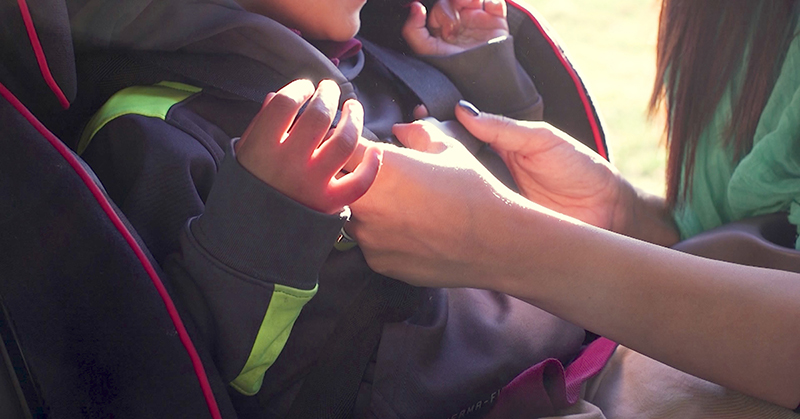TTUHSC Expert Warns About Dangers of High Temperatures and Kids in Cars

With the expected soaring high temperatures, the dangers of children suffering heat- related health injuries including death, also increase. According to the National Highway Traffic Safety Administration, 53% of hot car deaths happen because someone forgets to remove a child from a car.
Texas Tech University Health Sciences Center Chief Health Officer and Department of Family and Community Medicine Chair Ron Cook, D.O., said children left in cars can die of heatstroke in minutes.
“Children can suffer from heatstroke signs that would require immediate medical attention. They would first go into shock, have seizures, suffer from weakness, dizziness, nausea and headaches and eventually can lead to death very quickly.”
According to the American Academy of Pediatrics (AAP), on a 70-degree day, a parked car’s interior can climb to deadly temperatures in less than 30 minutes. Cook said the health consequences on a day when temperatures exceed 100 degrees can escalate even faster and a young child can suffer from heatstroke or die. On a 100-degree day, the interior of a car can reach over 130 degrees.
Here are some safety reminders from the AAP:
- Always check the back seat and make sure all children are out of the car before locking it and walking away.
- Avoid distractions while driving, especially cell phone use.
- Be extra alert when there is a change in your routine, like when someone else is driving your child or you take a different route to work or child care.
- Have your child care provider call if your child is more than 10 minutes late.
- Put your cell phone or purse in the back seat, so you check the back seat when you arrive at your destination.
- If someone else is driving your child, always check to make sure he has arrived safely.
- Keep your car locked when it is parked to prevent a curious child from entering when no one is around. Many hot car deaths have occurred when a child mistakenly locks himself inside.
- Make sure children do not have easy access to your car keys.
- Teach children that cars are not safe places to play.
- Keep rear fold-down seats closed to prevent a child from crawling into the trunk from inside the car. Remind children that cars, especially car trunks, should not be used for games like hide-and-seek.
Cook also said not to forget that high temperatures can quickly affect the health of our senior citizens and pets. And one last reminder, if you see a child trapped in a car, call 9- 1-1 and stay with the child until help arrives.
The National Highway Traffic Safety Administration provides this link to show how
quickly temperatures rise in a car: https://www.nhtsa.gov/child-safety/you-can-help- prevent-hot-car-deaths
